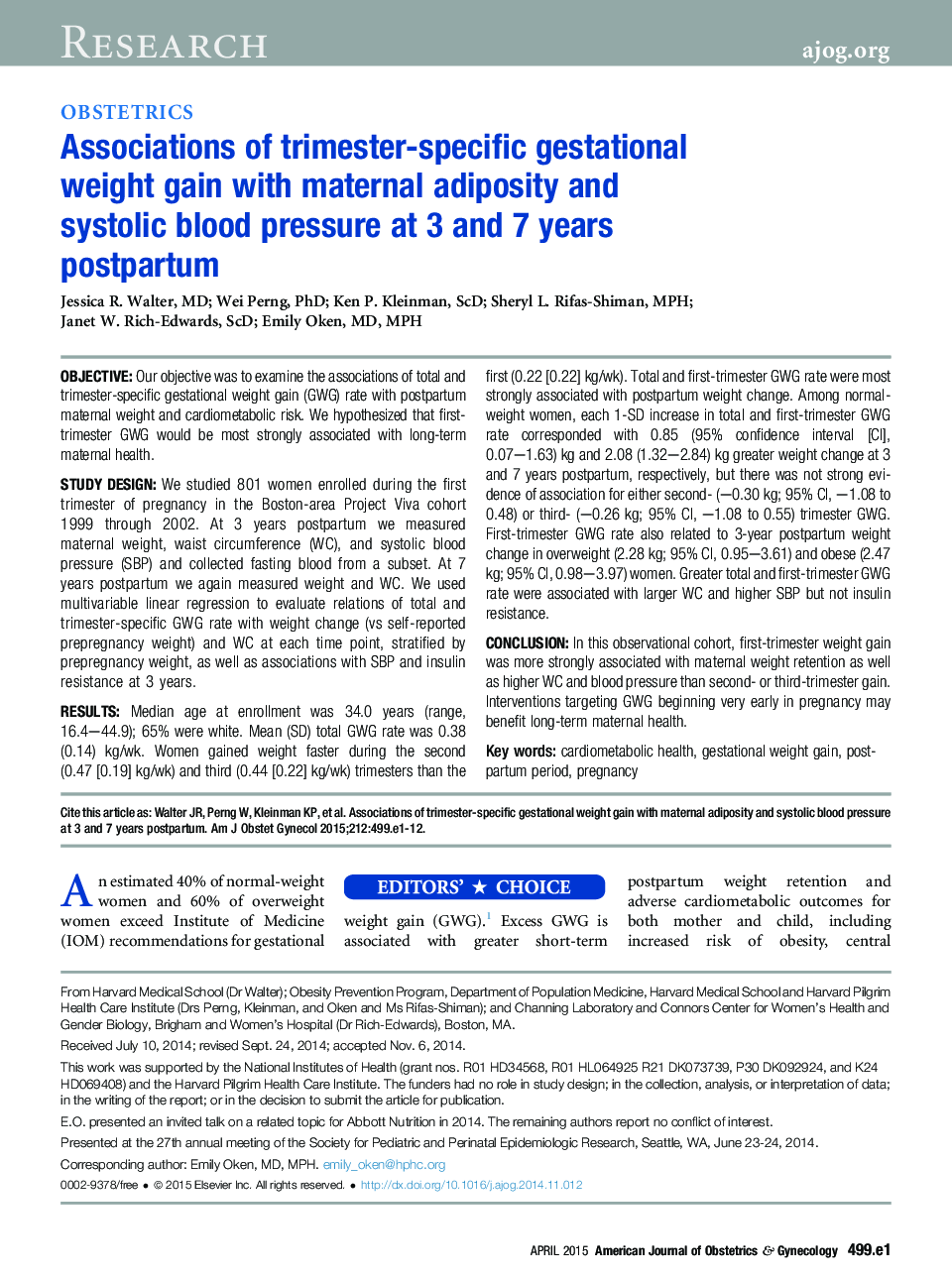| Article ID | Journal | Published Year | Pages | File Type |
|---|---|---|---|---|
| 6145316 | American Journal of Obstetrics and Gynecology | 2015 | 12 Pages |
ObjectiveOur objective was to examine the associations of total and trimester-specific gestational weight gain (GWG) rate with postpartum maternal weight and cardiometabolic risk. We hypothesized that first-trimester GWG would be most strongly associated with long-term maternal health.Study DesignWe studied 801 women enrolled during the first trimester of pregnancy in the Boston-area Project Viva cohort 1999 through 2002. At 3 years postpartum we measured maternal weight, waist circumference (WC), and systolic blood pressure (SBP) and collected fasting blood from a subset. At 7 years postpartum we again measured weight and WC. We used multivariable linear regression to evaluate relations of total and trimester-specific GWG rate with weight change (vs self-reported prepregnancy weight) and WC at each time point, stratified by prepregnancy weight, as well as associations with SBP and insulin resistance at 3 years.ResultsMedian age at enrollment was 34.0 years (range, 16.4-44.9); 65% were white. Mean (SD) total GWG rate was 0.38 (0.14)Â kg/wk. Women gained weight faster during the second (0.47Â [0.19] kg/wk) and third (0.44 [0.22] kg/wk) trimesters than the first (0.22 [0.22] kg/wk). Total and first-trimester GWG rate were most strongly associated with postpartum weight change. Among normal-weight women, each 1-SD increase in total and first-trimester GWG rate corresponded with 0.85 (95% confidence interval [CI], 0.07-1.63) kg and 2.08 (1.32-2.84) kg greater weight change at 3 and 7 years postpartum, respectively, but there was not strong evidence of association for either second- (-0.30 kg; 95% CI, -1.08 to 0.48) or third- (-0.26 kg; 95% CI, -1.08 to 0.55) trimester GWG. First-trimester GWG rate also related to 3-year postpartum weight change in overweight (2.28 kg; 95% CI, 0.95-3.61) and obese (2.47 kg; 95% CI, 0.98-3.97) women. Greater total and first-trimester GWG rate were associated with larger WC and higher SBP but not insulin resistance.ConclusionIn this observational cohort, first-trimester weight gain was more strongly associated with maternal weight retention as well as higher WC and blood pressure than second- or third-trimester gain. Interventions targeting GWG beginning very early in pregnancy may benefit long-term maternal health.
